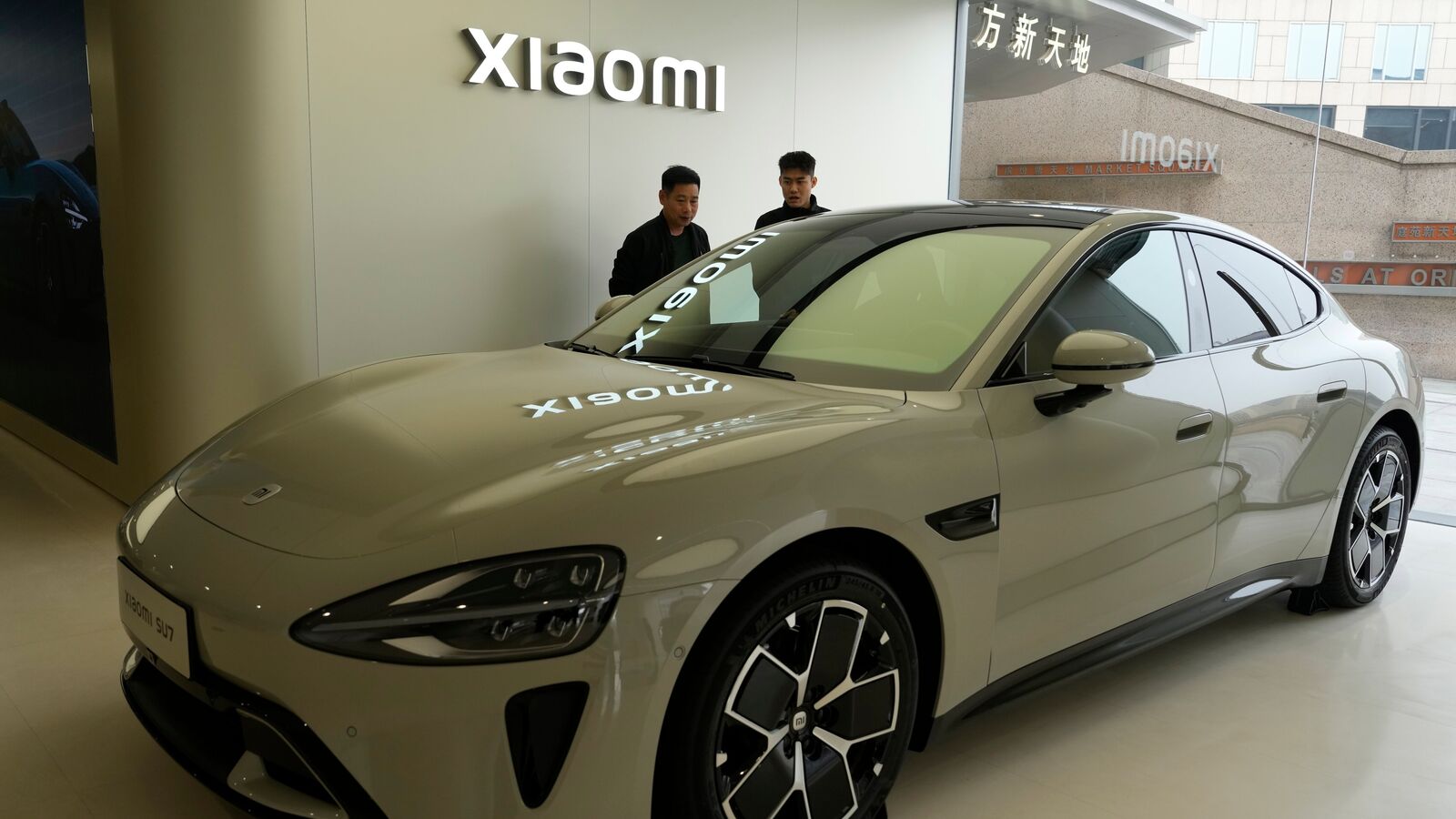As he screeches around corners at wildly unsafe speeds, one of the designers of the Jidu Robocar 07 calmly talks your correspondent through how the electric vehicle (EV) works. An alluring feature is its entertainment system—on which he is competing in a race-car game (thankfully, the actual car is stationary). Many of the EV’s features are controlled by voice command and there are almost no buttons or knobs. It has autonomous-driving functions, a sporty design and, its maker claims, can travel 900km on a single charge that takes 12 minutes. When it goes on sale in early September it is expected to cost just 220,000 yuan ($30,850). “It’s the future of driving,” the designer says, right as he smashes his virtual race car into a railing.
Another noteworthy feature of this EV is that it has been bankrolled by Baidu, a tech firm that runs China’s leading search engine. Baidu is one of a growing number of Chinese tech giants that have ventured into the car business in recent years. Huawei, a telecoms-equipment company, has also entered the industry. Xiaomi, best known for its smartphones and home appliances, is another example. In March it launched its own EV, the SU7. On August 21st it announced that it sold over 27,000 of the cars in the quarter from April to June; it aims to have sold 120,000 by the end of the year. Xiaomi’s EV business now has 87 sales centres across 30 Chinese cities.
For Western tech companies, cars have been a source of disappointment. Amazon invested heavily in Rivian, a maker of electric trucks that has shed about 90% of its market value since its initial public offering in 2021. Waymo, an autonomous-vehicle project controlled by Alphabet, has faced regulatory scrutiny over its safety record. Apple spent nearly a decade and some $10bn on a project codenamed “Titan”, but gave up earlier this year with little to show for the effort. Dyson, a British company known for its whizzy vacuum cleaners and hairdryers, also tried and failed to develop an EV.
China is different, partly because the average car buyer in the country is much younger than in the West. Many in China judge cars based on their software and entertainment systems—Chinese EVs are often described as “smartphones on wheels”. That has made the market easier for tech firms to crack. Tellingly, several of China’s successful EV brands were founded by tech veterans. Li Auto, one of China’s largest makers of EVs and hybrids, was founded in 2015 by Li Xiang, an internet entrepreneur. He Xiaopeng, who in 2014 co-founded Xpeng, another big Chinese EV business, started off in software development.
Chinese tech firms have approached the industry in varying ways. Baidu established JIDU as a joint venture with Geely, a Chinese carmaker; the tech firm holds a 48% stake in the business. That has saved it the trouble of learning how to make cars, allowing it to focus instead on providing technology such as voice-recognition and autonomous-driving software. For Apollo Go, Baidu’s robotaxi business, the vehicles are similarly supplied by Chinese car brands such as Hongqi and Arcfox.
Huawei has steered in a different direction. In return for a cut of sales, it assists carmakers such as Seres, maker of the AITO brand of EVs, with software, hardware, design and marketing. In the first half of the year it helped develop and sell 200,000 cars. At Huawei’s flagship store on Beijing’s main shopping street the windows are lined with cars, as if to taunt the Apple store lying directly opposite. Investors are piling in. A regulatory disclosure on August 20th by Avatr, a state-backed EV brand, showed it had purchased a stake in one of Huawei’s auto-solutions businesses, valuing it at $16bn.
Xiaomi has travelled the furthest towards becoming a full-fledged carmaker. The company, which announced its plan to produce a car only three years ago, initially enlisted BAIC, a Chinese carmaker, as its contract manufacturer. Last month it was given permission by the Chinese government to produce vehicles itself. That may prove transformative for the company, which got its start in 2011 selling sleek but cheap smartphones online and has since grown into one of the country’s leading makers of gadgets. Success in carmaking would also be the ultimate vindication for a business that has long been accused of copying Apple’s products.
Still, the road to profitability may be bumpy. Although self-driving cars are gaining popularity in China, regulatory hurdles could limit opportunities from the technology. More important, every newcomer to China’s EV industry intensifies its already vicious price war. Xiaomi will probably have to sell around 300,000-400,000 vehicles a year to turn a profit. Huawei has said that its auto unit breaks even when cars sell for 300,000 yuan; some AITOs currently sell at 250,000. China’s tech firms have become formidable competitors in its car industry. Making money, though, is another matter.
© 2024, The Economist Newspaper Limited. All rights reserved. From The Economist, published under licence. The original content can be found on www.economist.com
Catch all the Business News , Corporate news , Breaking News Events and Latest News Updates on Live Mint. Download The Mint News App to get Daily Market Updates.
MoreLess
#Apple #cars #Meet #Chinese #tech #giants






